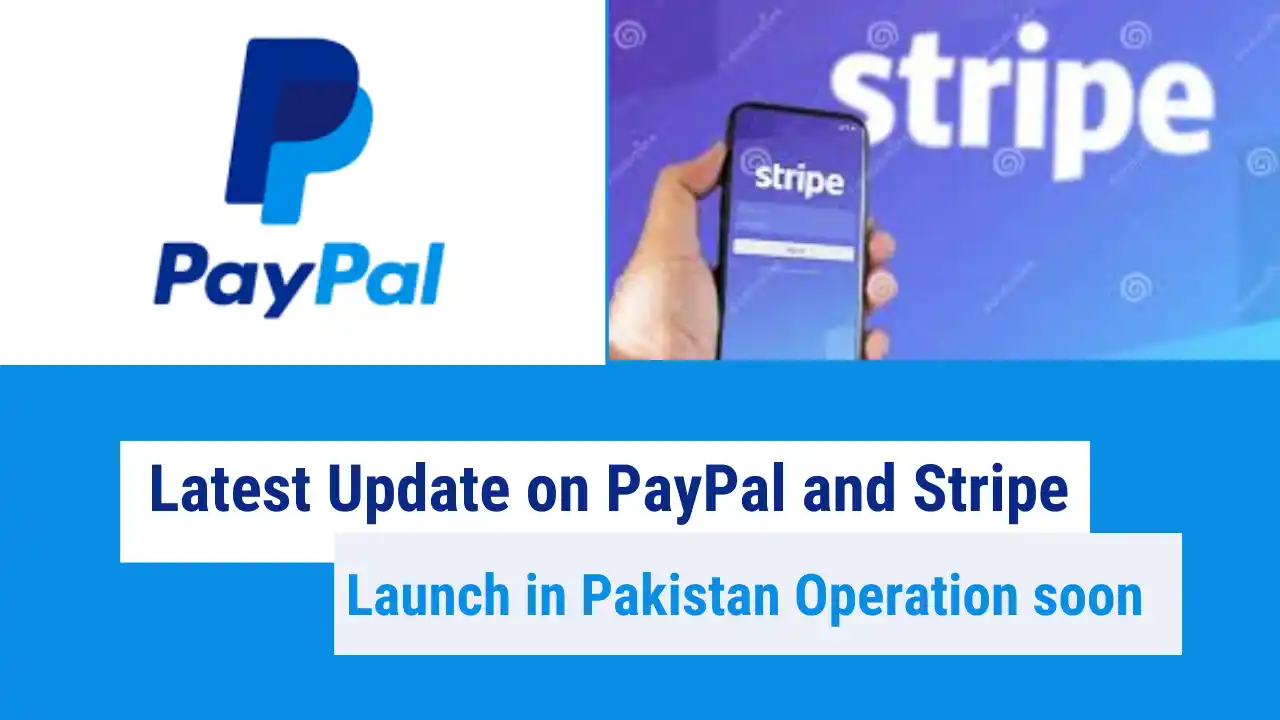PayPal and Stripe Launch in Pakistan
In a significant development for Pakistan’s freelancers and the IT industry, caretaker Federal Minister for Information Technology and Telecommunication, Dr. Umar Saif, has announced that negotiations are underway with online payment giants, PayPal and Stripe Launch in Pakistan. This move is poised to open up new horizons for the country’s tech-savvy population and freelancers. In this article, we’ll delve into the latest updates regarding these negotiations, their potential impact, and the broader implications for Pakistan’s IT sector.
Table of Contents
PayPal and Stripe Launch in Pakistan
Quest to Bring PayPal
Dr. Umar Saif, in a conversation with the media, disclosed that efforts are being made to persuade PayPal to initiate its operations in Pakistan, possibly through a third-party model, similar to its setup in Egypt. Negotiations are ongoing to convince PayPal to extend its services in Pakistan, which will undoubtedly be a game-changer for the country’s e-commerce landscape. Saif also announced that another round of talks with PayPal is scheduled for the near future.
Bringing PayPal to Pakistan
PayPal is a renowned online payment platform that has revolutionized the global e-commerce industry. Its entry into Pakistan could potentially streamline online transactions, benefit freelancers, and provide a secure, efficient payment gateway for businesses. Dr. Saif’s vision is to bring PayPal to Pakistan and ensure that it caters to the specific needs of the Pakistani market.
Negotiations with Stripe
In addition to the discussions with PayPal, talks with Stripe, another prominent online payment solution, are also progressing. Stripe offers a wide range of features and tools for online businesses, making it an ideal candidate to support Pakistan’s IT sector. Dr. Saif has provided updates on the ongoing negotiations with Stripe, and it’s expected that this partnership will further bolster Pakistan’s digital economy.
Approval from the Caretaker Prime Minister
Earlier this month, Dr. Umar Saif presented his ambitious plan to the caretaker Prime Minister, Anwaarul Haq Kakar, outlining the PayPal and Stripe Launch in Pakistan. The plan also encompasses several key initiatives to enhance Pakistan’s IT sector:
Dollar Retention Accounts
One of the core components of the plan is the institutionalization of dollar retention accounts. This measure aims to facilitate the flow of money in and out of these accounts, ensuring a smooth and efficient financial ecosystem for the IT sector.
Debit Cards
To simplify financial transactions, the plan includes the issuance of IT corporate debit cards. These cards will empower IT professionals and businesses to manage their finances with ease, enabling seamless international transactions.

Streamlining Tax Issues
The plan acknowledges the significance of addressing tax-related challenges that have hindered the growth of the IT sector. Streamlining tax issues will create a more favorable environment for businesses and freelancers.
IT Professionals
In an effort to boost the IT sector’s capabilities, the plan includes the training of 200,000 IT professionals. This strategic move aims to add a substantial $5 billion to IT exports, underlining the government’s commitment to fostering IT skills in the country.
Co-Working Spaces
Dr. Umar Saif’s vision extends beyond just payment gateways. He envisions the establishment of co-working spaces for 500,000 freelancers, with the goal of unlocking an additional $3 billion per year in potential revenue. These co-working spaces will provide freelancers with the necessary infrastructure to thrive in a collaborative and innovative environment.
Launch of Starlink
The plan also features the launch of Starlink in Pakistan. This ambitious satellite internet project by SpaceX is set to enhance connectivity throughout the country, particularly in remote and underserved areas.
Conclusion
The ongoing negotiations with PayPal and Stripe Launch in Pakistan, combined with the comprehensive plan put forth by Dr. Umar Saif, are indicative of Pakistan’s commitment to nurturing its IT sector. The potential launch of these global payment platforms, along with other supportive measures, holds the promise of transforming the IT landscape in Pakistan. It’s a beacon of hope for freelancers, businesses, and the entire tech ecosystem of the country.

